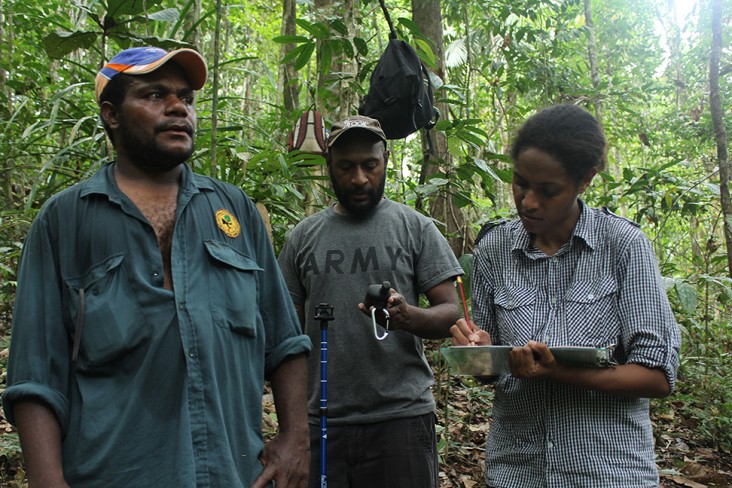
For Immediate Release
In a step forward for the “Ridges-to-Reef” approach to managing Madang Province’s unique and stunning natural resources, the United States Agency for International Development (USAID)-supported Lowering Emissions in Asia’s Forests (LEAF) project is bringing together local communities, decision makers, NGOs, educators and government representatives for an innovative training designed to measure the amount of carbon contained in its forests.
The biomass training will be held from July 17-25, a component of the broader Ridges-to-Reef initiative, which takes a holistic approach to natural resource management, connecting Madang’s forests from its mountainous interior to those along its lowland coastal areas.
“This training is vital for the future of Madang’s mountains and coasts,” said Roy Banka, Reducing Emissions from Deforestation and Degradation (REDD+) Field Coordinator for USAID LEAF. “It will provide communities and decision makers with the skills they need to determine the carbon value of the forests, which in the end will lead to valuable information to help them better manage the forests for future generations.”
Biomass is the total amount of living matter by weight or volume in a given habitat. Data derived from measuring it can be used to monitor changes in a forest, and its ability to store carbon over time. More information on the changes in the forest can foster better decision making and action so the forest can continue to provide valuable resources to communities whose livelihoods depend on its health. “We believe that serious forest carbon stock monitoring by decision makers and field practitioners will improve sustainable land use planning and implementation,” said Alfred Nakatsuma, USAID Asia’s Regional Environment Office Director.
The Madang training will also be tightly integrated with the emerging standards and protocols currently being developed under Papua New Guinea’s National Forest Inventory, and will provide an important opportunity to continue to inform and field test many of the developing national standards.
The USAID Mangrove Rehabilitation for Sustainably-Managed Healthy Forests (USAID MARSH) project will hold a follow-up training from July 28-August 2 in Manus Province focused on measuring biomass in mangrove forests. The Manus training will also help to inform further “Ridges to Reef” activities in Papua New Guinea.
The biomass training is part of USAID LEAF’s commitment to building technical capacity in Papua New Guinea and Southeast Asia for monitoring changes in forest carbon stocks and demonstrating innovations in sustainable land management. Trainings have also been held in Laos, Malaysia, Thailand and Vietnam. Two carbon scientists from the United States-based Winrock International, implementer of the USAID LEAF project, will lead the training.
USAID LEAF is a five-year cooperative agreement, funded by the United States Agency for International Development (USAID) Regional Development Mission for Asia. USAID LEAF is being implemented in partnership with SNV – Netherlands Development Organization, Climate Focus, and RECOFTC - The Center for People and Forests. USAID LEAF employs a regional approach to produce meaningful and sustainable reductions in greenhouse gas emissions from the forest-land use sector across six focus countries: Thailand, Laos, Vietnam, Cambodia, Malaysia, and Papua New Guinea.







Comment
Make a general inquiry or suggest an improvement.